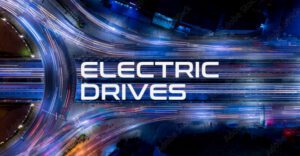Electric car charging start-up, Paua, has delivered a successful trial showing how its ‘Plug & Charge’ solution makes charging up your electric car completely effortless. It requires no apps, charge cards or admin to start a charge. You simply plug in, and charging and billing is taken care of.
Enabling an electric vehicle (EV) driver to simply pull up at a charge point and plug in to receive a charge has been a goal of the industry since Tesla first demonstrated the ease of charging on their proprietary charging network which is only available to Tesla.
The plug and charge capability has been demonstrated elsewhere including on specific rapid chargers by charge point operators, Fastned, for a number of years, and more recently on Gridserve’s new rapid chargers.
What makes this announcement so exciting is that the technology would not be limited to only one car brand or to only one network. Paua can enable this for all modern electric cars on public charging points.
Simplifying public electric vehicle charging is at the heart of the UK Government’s objectives to support the decarbonisation of transport. Electric vehicle drivers just want to plug in and receive a charge and get on with their lives. Saving driver time and improving the experience is crucial to EV adoption.
Normally a driver has to pull out a phone, tap a card or press some fiddly buttons to start a charge. With this solution, these steps are removed. You simply plug in and the vehicle starts charging. Payment is taken care of automatically.
This has the potential to disrupt EV charging experience in the same way that Amazon Go’s cashless shopping simplifies the shopping experience.

The Paua ‘Plug & Charge’ event was demonstrated at a Mer EV fast AC charger in Reading with a Renault Zoe. The solution has been designed to work with all cars and all chargepoints not relying on complex standards such as ISO15118 or closed ecosystems such as Tesla.
Paua believes everyone should have access to this technology as soon as possible so they can spend less time worrying about charging and more time doing the things that they love. Simplifying the experience will encourage more to drive electric cars sooner which will reduce emissions and help save the planet.
André Pinho, Paua Chief Technical Officer, said: “With this technology, we can enable any chargepoint connected to Paua to deliver this experience to drivers.
“Paua Plug & Charge will revolutionise electric vehicle charging because Paua’s solution doesn’t require you to buy a top of the range Porsche Taycan with sophisticated new features.
“We have designed this to work with the most popular electric cars on the roads today and it will work on a kerbside 7kW charger or a 150kW rapid charger. This is the future of EV charging.”
Paua received funding from the Department of Transport through the T-TRIG scheme.
Rachel Maclean, Transport Minister, said: “This funding will make the UK one of the most attractive places for SMEs and university thinkers to do what they do best, as we look to build back better, while also solving the complex challenge of decarbonising transport.”
Niall Riddell, CEO Paua stated “We are delighted with the support provided by the Department for Transport and now we are seeking funding to scale this up and extend it to all drivers. We have an exciting technology-led future ahead of us”.
The solution requires some pre-registration from the driver and works based on a proprietary algorithm. This was developed by the company under funding provided by a Transport Technology Research and Innovation Grant delivered by the Connected Places Catapult and funded by the Department for Transport.
Layers of data from the connected devices in this new modern ecosystem enable drivers to have an easier journey. Paua seeks to take on the complexity and offers the driver a superior experience.
Chargepoint operators signed up with Paua can enable this Plug & Charge solution as Paua extends this to multiple vehicle types. Paua is seeking to extend the technology to Tesla drivers outside of the supercharger network as well as BMW and Jaguar.
The use of this technology is estimated to save 80,000 hours of drivers’ time today and to be worth millions to the British Economy by 2030. This is when Government has committed to the ban on the sale of combustion engine vehicles.



